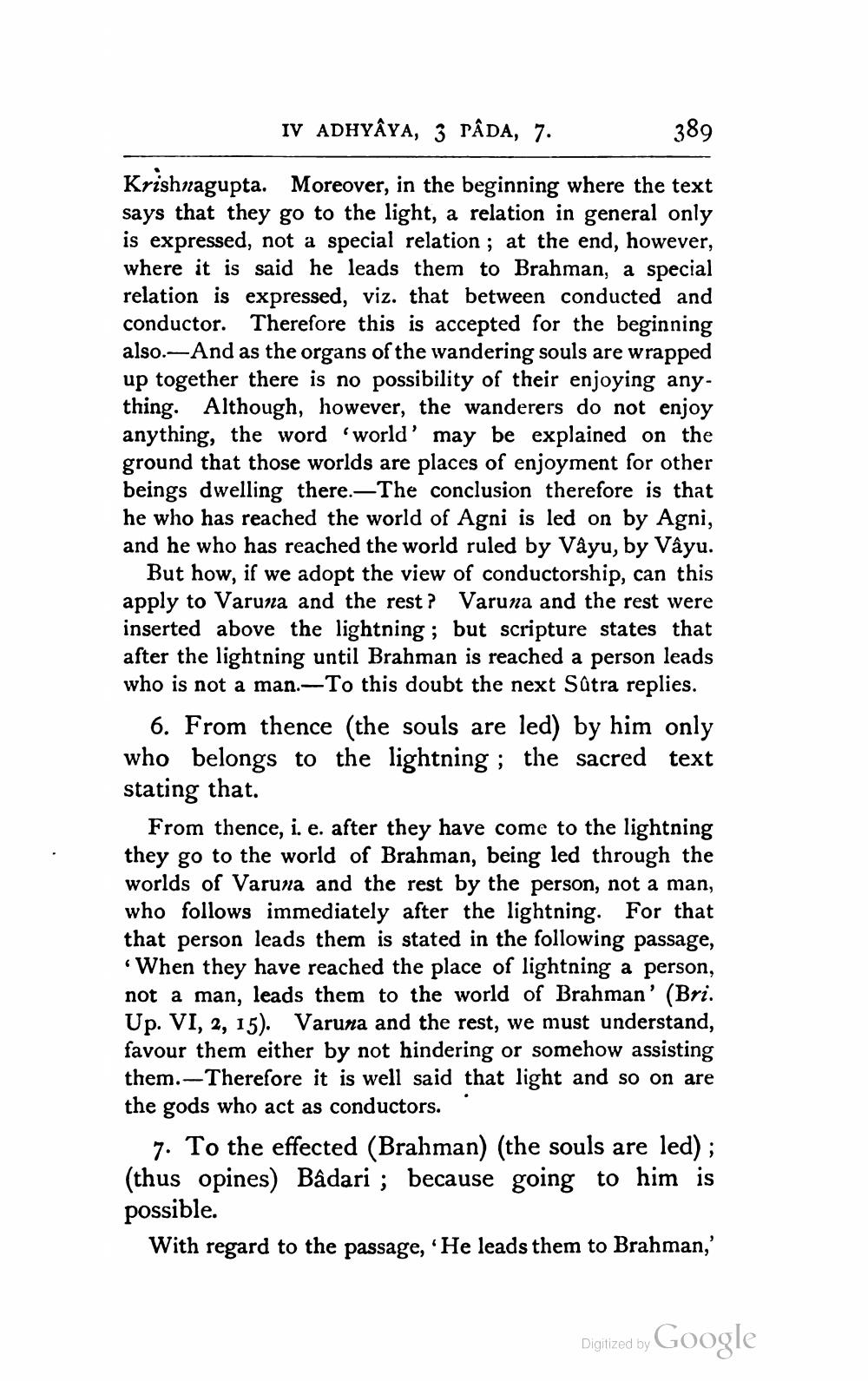________________
IV ADHYAYA, 3 PÂDA, 7.
389
Krishnagupta. Moreover, in the beginning where the text says that they go to the light, a relation in general only is expressed, not a special relation; at the end, however, where it is said he leads them to Brahman, a special relation is expressed, viz. that between conducted and conductor. Therefore this is accepted for the beginning also. And as the organs of the wandering souls are wrapped up together there is no possibility of their enjoying anything. Although, however, the wanderers do not enjoy anything, the word 'world' may be explained on the ground that those worlds are places of enjoyment for other beings dwelling there.-The conclusion therefore is that he who has reached the world of Agni is led on by Agni, and he who has reached the world ruled by Vâyu, by Vâyu.
But how, if we adopt the view of conductorship, can this apply to Varuna and the rest? Varuna and the rest were inserted above the lightning; but scripture states that after the lightning until Brahman is reached a person leads who is not a man.-To this doubt the next Sûtra replies.
6. From thence (the souls are led) by him only who belongs to the lightning; the sacred text stating that.
From thence, i. e. after they have come to the lightning they go to the world of Brahman, being led through the worlds of Varuna and the rest by the person, not a man, who follows immediately after the lightning. For that that person leads them is stated in the following passage, 'When they have reached the place of lightning a person, not a man, leads them to the world of Brahman' (Bri. Up. VI, 2, 15). Varuna and the rest, we must understand, favour them either by not hindering or somehow assisting them. Therefore it is well said that light and so on are the gods who act as conductors.
7. To the effected (Brahman) (the souls are led); (thus opines) Bâdari; because going to him is possible.
With regard to the passage, 'He leads them to Brahman,'
Digitized by Google




